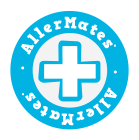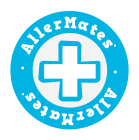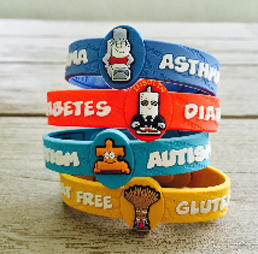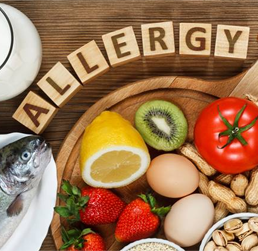
Food Allergies & Picky Eating: A Challenging Combo
This week, we welcomed Joy Marie Adamonis from My Sensational Kid and Me as our guest blogger. Joy’s blog focuses on the ups and downs of her life with her son, who was diagnosed with Sensory Processing Disorder.

Most food allergy parents would agree that finding quality allergy friendly products for our kids is not as easy as we would like. However thanks to the influx of food allergy awareness, shelves are beginning to fill with more options. Large retailers and companies are providing safer manufacturing practices as well. This is great news for the population living with a severe food allergy. But what happens if your child is also a picky eater in addition to having an allergy? Choices diminish quickly and mealtime is usually not pleasurable.
In addition to his nut allergy, my son Landon has Sensory Processing Disorder (SPD) and Selective Eating Disorder (SED). Those who have been diagnosed with SED often remove entire food groups from their diets and might eat based on color/texture and some are even brand specific. It takes the terms “picky eater” to a whole new level. Physical gastrointestinal reactions such as vomiting or gagging can also be a symptom. Some studies have identified symptoms of social avoidance due to their eating habits. Most, however, would change their eating habits if they could.
Landon eats a very beige diet, dubbed the “sensory diet”. It consists of mushy, easy to chew, beige foods such as bread, bananas, applesauce, crackers, waffles, cheese and chicken. Even though Landon’s relationship with food is what most would consider unhealthy, Landon is thriving. While some days his SED paired with his allergy is socially prohibitive, anxiety-inducing, and out of his control, he never lets either one of them hold him back. Paired with feeding therapy, a boatload of patience and trial and error, Landon now has about 20-25 preferred foods on his menu.
Below are some helpful DO’s & DON’T’s that I’ve learned through the years for handling a child with an allergy and/or eating disorder:
- DO PLAN AHEAD: For dining out, always call a restaurant or visit their website ahead of time to make sure there is something on the menu for your child. Informing family members as well is also helpful. You should always make a child feel included in the meal regardless of how limited their diet is. Pack allergy approved snacks you know your child will eat for the time when there just isn’t any other safe option. We love applesauce pouches, goldfish and cheese sticks!
- DO BE PREPARED FOR WASTE: A true picky eater might not like that you went and bought the store brand of goldfish crackers this week in hopes of saving some money. Also, there are many times when we try a new allergy friendly item and we just don’t like it. If you don’t want to return the item, give it to a friend who has kids. They will appreciate it more than you know! My friends love coming over to see what I have for them!
- DON’T CENTER CONVERSATIONS ON FOOD: For those suffering from an eating disorder or food allergy, meal times can be very stressful. Some children are known to have anxiety attacks when they are around food they deem not safe. When a child is at a party and cannot have the cake because of an allergy, try and spin the situation towards a positive note. We never want food to take center stage. Besides, I never liked cake anyways!
- DO YOUR RESEARCH: Learn as much as you can about what your child is going through. Know what to look for on labels. Read and re-read them. Teach those who are around your child what you have learned. A little understanding can go along way and can only benefit your relationship in the long run. I am always learning about new allergy friendly foods that are being released! I am so happy the market is blooming!
- DON’T BLAME YOURSELF: I think we all have been here. As parents, when things go wrong we tend to put the blame on ourselves. The second you start to blame yourself for your child’s eating challenges or allergies, you lose focus on what is most important; your child. You need a clear mind to focus on their treatment and to set an allergy plan in motion. I’ve been here, many times and it never does anyone any good!
- DO CARRY YOUR MEDICATION: This goes without saying. Always carry emergency medication at all times: If you are diagnosed with a food allergy, your doctor should prescribe epinephrine in an auto-injector. Epi-pens are an important tool to have on you at all times. Benadryl or inhalers might be prescribed as well. Having a allergy alert bracelet is also a great idea. We love Allermates bracelets! They are lifesaving and fashionable!
Some days are better than others in regards to mealtime, but like everything in life you need to choose your battles wisely. We learned that forcing food on Landon, no matter how much we thought he would enjoy it, was not the answer. Sure, our trips to restaurants are few and far between and our grocery trip is never quick (or cheap), but our child is happy & healthy. Let’s make food allergy awareness something to celebrate, regardless if you have an allergy or not. Food should bring people together, not tear them apart.






